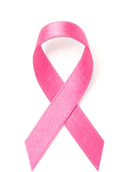Breast cancer is one of the most common cancers in American women. It is more common among older women than younger women.
Although younger women may develop breast cancer, three-fourths of all breast cancer occurs in women who are 50 years-old or older
i. The good news is that today more women are surviving breast cancer than have survived it in the past.
Over two million women are breast cancer survivors. Many treatments are available to treat breast cancer, but all treatments work best when the disease is found early.
According to NIH Senior Health, when breast cancer is detected in its earliest stages, 98 percent of women with the disease are alive five years later.

What is Breast Cancer?
A person’s body consists of many types of cells. Normally, cells grow, divide and produce more cells to maintain the body’s health. But the process can go wrong. Cells can become abnormal and produce more cells in an uncontrolled way. The extra cells can form a mass of tissue, called a growth or tumor. Breast cancer happens when malignant tumors develop in the breast tissue of an individual.
Risk Factors
Research has shown that several risk factors may increase a person’s chances of developing breast cancer. The Centers for Disease Control and Prevention (CDC) cites the following risk factors:
- Getting older
- Being younger when you first had your menstrual period
- Starting menopause at a later age
- Being older at the birth of your first child
- Never giving birth
- Not breastfeeding
- Personal history of breast cancer or some non-cancerous breast diseases
- Family history of breast cancer (mother, sister, daughter)
- Treatment with radiation therapy to the breast/chest
- Being overweight (increases risk for breast cancer after menopause)
- Long-term use of hormone replacement therapy (estrogen and progesterone combined)
- Having changes in the breast cancer-related genes BRCA1 or BRCA2
- Drinking alcohol (more than one drink a day)
- Not getting regular exercise
Having a risk factor does not mean you will definitely develop the disease. Most women have some risk factors and most women do not develop breast cancer. If you have any breast cancer risk factors, speak with your doctor to learn how you can lower your risk and
get screened for breast cancer.
What can I do to Increase Awareness of Breast Cancer?
Ocotber is National Breast Cancer Awareness Month. There are many ways you can promote information on breast cancer. You can partner with local women’s organizations, community groups, and senior centers to reach women over age 40 with important information on breast cancer screening. You can also post information to social media channels (such as Facebook and Twitter) to promote awareness of breast cancer. HealthFinder.gov is offering tweets on breast cancer in honor of National Breast Cancer Awareness Month.
Resources for Learning More about Breast Cancer
For more information on breast cancer, visit these resources:
i
NIH Senior Health, See
http://nihseniorhealth.gov/breastcancer/causesandriskfactors/01.html